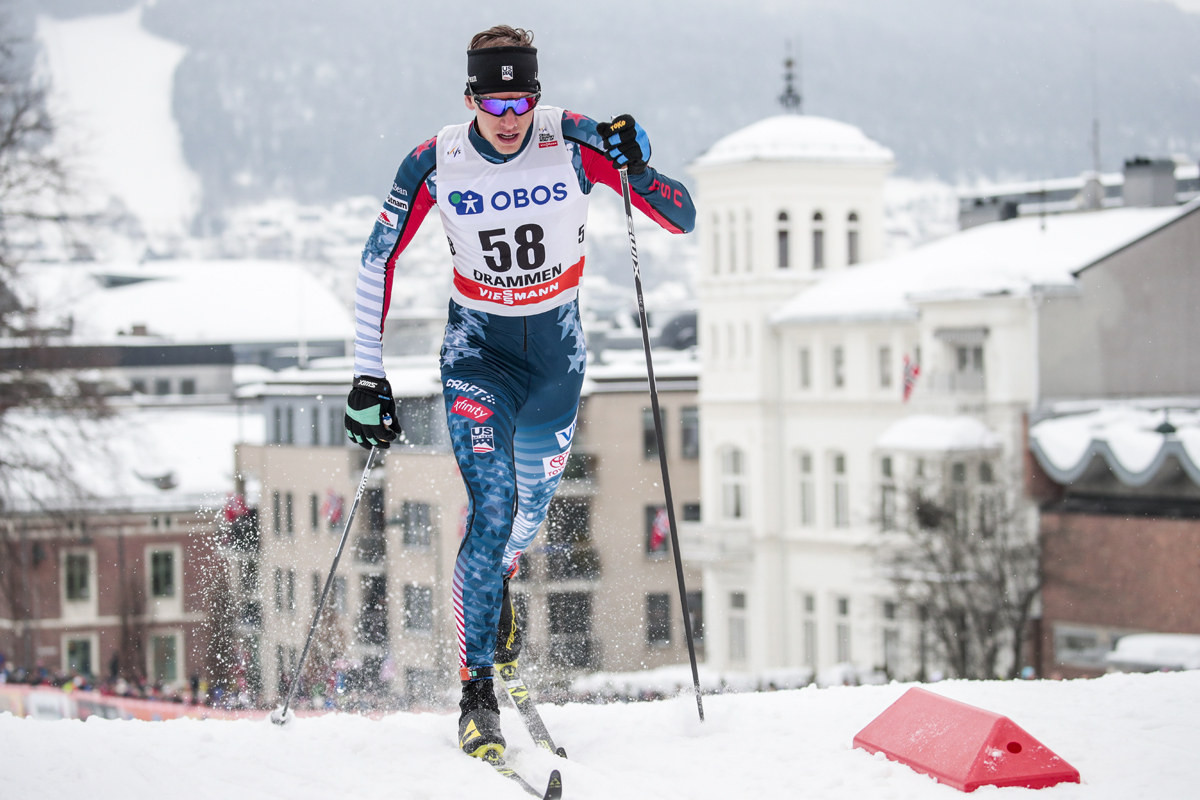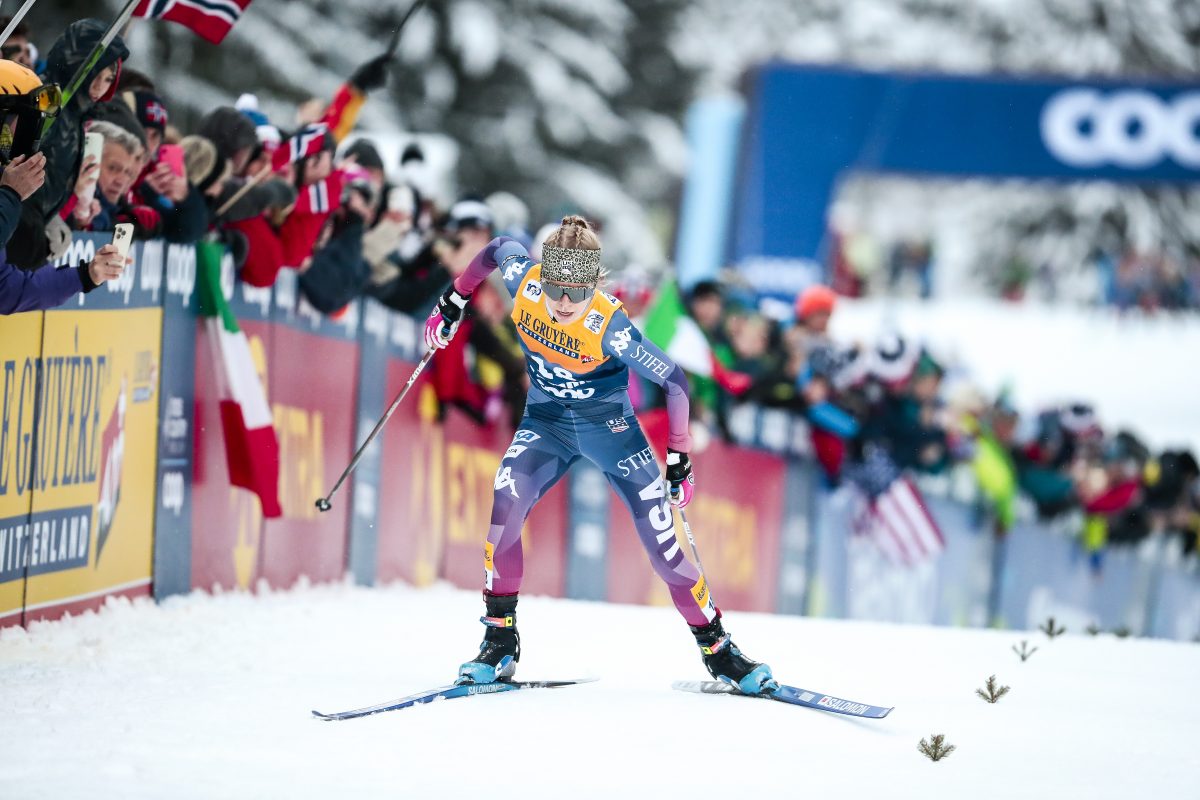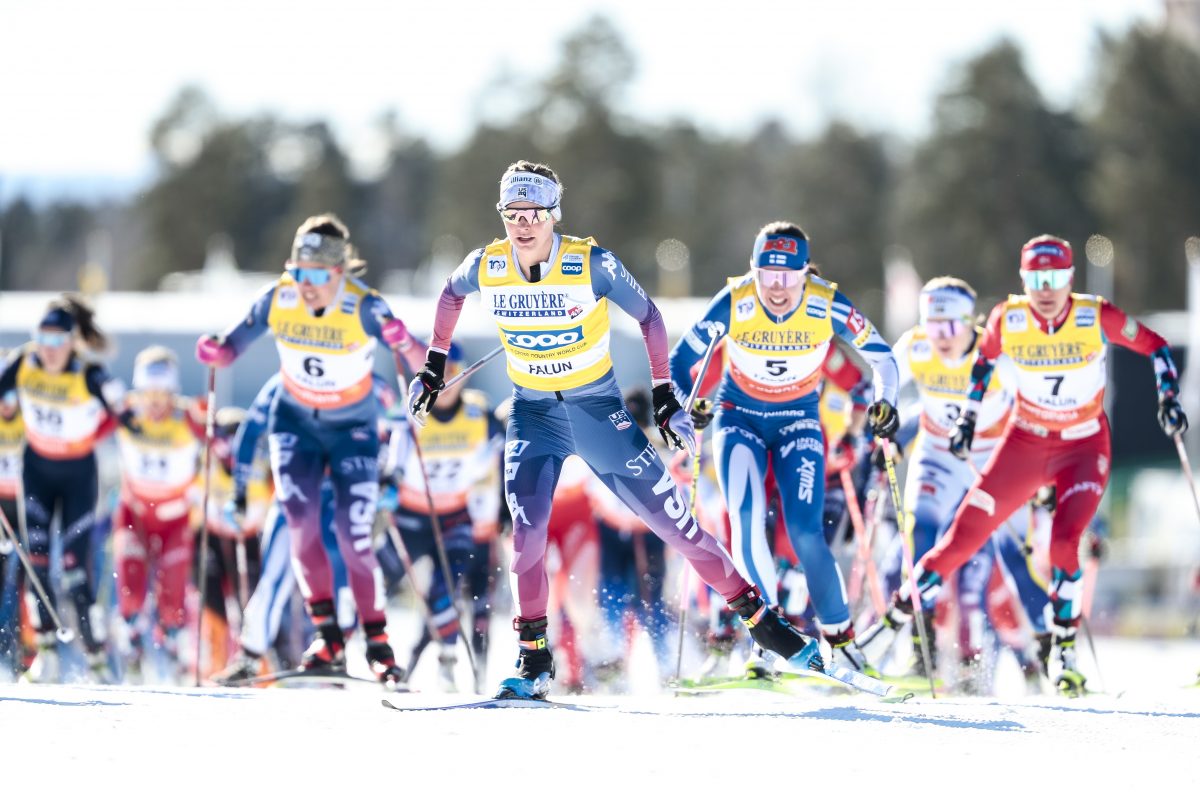
There’s a reason Kevin Bolger has spent his last four summers in Trondheim, Norway, rent free.
You could say it started in 2014, when his older brother, Conor, began his Ph.D. work at the Centre for Elite Sports Research in Trondheim. As a doctoral candidate in the center’s neuroscience department, Conor’s work involved lab time. Specifically, lactate and VO2 max testing on Norwegian cross-country and nordic-combined national team members.
Conor soon established a relationship with a number of Norwegian national teamers. Athletes like Niklas Dyrhaug and Eldar Rønning became more than lab subjects. They were friends. Christmas was spent with the Slind family (Astrid, Silje and Kari ring any bells?) and at one point, Conor and Dyrhaug were next door neighbors.
By the summer of 2015, Conor had convinced his younger brother, Kevin, to book a ticket to Trondheim. Every summer since then, Kevin has repeated the journey. He’s managed to avoid paying rent by staying with his brother Conor for the first two summers and for the next two, stayed at Astrid Øyre Slind’s apartment.
“[Astrid] lets me stay there for free, which is insanely awesome,” Bolger, 25, told FasterSkier on the phone earlier this month. “She isn’t even really there that much, so I’m kind of by myself bachelor pad-ing it up in Norway.”
This summer, Bolger trained predominantly with Norwegian national-team standouts Dyrhaug and Didrik Tønseth. His summer training plan, which he and his coach, Chris Mallory of the Sun Valley Ski Education (SVSEF), mapped out before he left, remained loosely defined.
For example, a one-week plan from Mallory in the summertime may require Bolger to complete a 25-hour week, with three interval sessions and two strength sessions, but not specify the type of intensity or strength exercises.
“It gives me the freedom to fill out my own week,” Bolger said.

This way, the basics of Mallory’s plan are met and Bolger can simultaneously maximize the amount of time he trains alongside Dyrhaug and Tønseth.
What’s struck Bolger the most from his training tenure in Norway is “how in tune they are with their bodies.”
“If it’s a easy session, it’s an easy session. If it’s intervals, it’s intervals. And if they’re tired, they’re resting,” he said. “They’re really smart when it comes to what they’re doing from day to day to day.”
Another reason training in Norway is hard for him to pass up — aside from the free rent and panoramic views of the fjord — is the support he feels. It’s nice when an entire nation’s favorite pastime happens to be yours, too (not to mention that one can rollerski on a main street without anyone batting an eye).
“Skiing is the lifestyle over there. For some reason I find, I don’t know, it just feels easier,” Bolger said.
Even with two world champions. Bolger’s first summer in Norway came after his sophomore year at the University of Utah (UU), where he had posted “some good results”, but “nothing amazing,” he said.
Meanwhile, Dyrhaug and Tønseth were fresh off a gold medal in the men’s 4 x10-kilometer relay at 2015 World Championships in Falun, Sweden. (Both went on to win gold again in the men’s relay at 2017 World Championships).
“For them to open up and be like, ‘Yeah, you can come over here and train with us,’ especially Niklas [Dyrhaug and Didrik Tønseth] being world champs, that was really cool,” Bolger said.
Echoing a remark made by Jessie Diggins, who joined the Norwegian women’s team for a weeklong training camp two summers ago, Bolger was adamant that the Norwegians are nothing but open when it comes to their training practices.
“There is no secret; they’re not trying to hide anything,” he said. “They want the sport to grow.”
This summer marks Bolger’s first as a U.S. Ski Team (USST) member. His B-team nomination came in May.
Big Dividends
In his World Cup debut this past March, Bolger sprinted to 11th overall a freestyle sprint in Lahti, Finland, placed 30th in a skate sprint at World Cup Finals in Falun, and finished second to David Norris in the season-long SuperTour standings.

Considering those results, Bolger said his family and teammates were confident he earned a spot on the U.S. squad. Even so, leading up to the USST nominations this spring, his mindset remained “until I get the phone call or I get the nod that it actually happened, I’m not assuming anything.”
Two months after the last races of the season, Bolger received word from USST coach Matt Whitcomb. He made it.
“When that phone call did come through,” he said with a pause, “it was unbelievable. I was so fired up.”
Skiing has been a longtime passion for Bolger, something he picked up as a third grader growing up in Minocqua, Wisconsin. He credited Conor, who’s four years older, as playing an influential role in his ski career. In a way, he was the one who ignited the flame.
“My older brother was involved with skiing, and of course, when I was in third grade I wanted to be like my older brother,” Bolger said.
Bolger continued to ski through middle school and high school, eventually winning two championship titles his junior and senior years. After high school, he spent two gap years with the SVSEF program before starting his studies at the University of Utah. There, he earned six regular-season podiums (including two wins), a top-10 finish for All-American status at NCAA Championships (despite frostbitten fingers), a team championship title (Utah’s first in 14 years), all during his senior year. To top it all off, his first national title came that same season.
Following graduation, he headed back to Sun Valley to join the Gold Team. After one training year with SVSEF, he garnered a USST nomination.

In the years leading up to that, Bolger has found financial support from the SVSEF, as well as grants, Utah contacts, and fans who are “fired up” about his accomplishments. His parents have helped, too, particularly when it comes to fundraising ideas and forums.
“My mom calls herself my agent,” Bolger said with a laugh.
He also has a “skiing resume,” a paper printout of his season costs and where he will funnel any proceeds, which he hands out to potential sponsor or donors.
“I think it’s that big question mark everyone wants to know: How much do things cost?” Bolger said. “I don’t think anyone likes to talk about it or throw numbers out, but I believe that they really should be out there, people should know.”
He estimates this season will cost him $30,000 dollars. The U.S. Ski Team covers room and board for training camps, but Bolger did not attend the men’s France camp in July. This winter, all B-team athletes will also receive an additional $5,000 dollars for room and board, Bolger said.
When asked how an athlete — who is looking to do what he has done — might realistically make that happen financially, his response hinged on the connections he has made over the years.
“For me, it was a lot of networking; being able to find somewhere where you can not have to pay rent. That’s huge,” he said. “You get a lot of support by networking and getting to know people. … You can’t be afraid to put yourself out there and ask for help.”
As Bolger looks ahead to the season, simply qualifying for sprints is not the end goal.
“I don’t want to just go [to Europe] and ski on the World Cup,” he said. “I want to be competitive.”
Eleventh in a sprint is competitive, and Bolger is hungry to prove himself again in future sprint rounds.
“We’ve had a lot of guys that go over there and have the opportunity, but no one’s really capitalized on it,” he said.
In his first few World Cups, he has managed to break into the sprint rounds (top 30), not an easy feat. Perhaps his time in Norway has helped soften the nerves.
“I’ve been going to Norway, I’ve trained with Niklas, Didrik and Emil Iversen and even done a few interval sessions with Johannes [Høsflot Klæbo] … I’ve been surrounded by [them in training],” he said. “I don’t know if that’s what helped going into those races.”
“A lot of these guys I’ve looked up to my whole career and now I’m skiing against them,” he added.
Toeing the line with one’s childhood idols may be intimidating — if you let it. For now, Bolger’s primary focus is on his training and racing, not the big names he may be pinned up against.
“At the end of the day, we’re all just trying to do the same thing: ski fast,” he said.
Gabby Naranja
Gabby Naranja considers herself a true Mainer, having grown up in the northern most part of the state playing hockey and roofing houses with her five brothers. She graduated from Bates College where she ran cross-country, track, and nordic skied. She spent this past winter in Europe and is currently in Montana enjoying all that the U.S. northwest has to offer.



